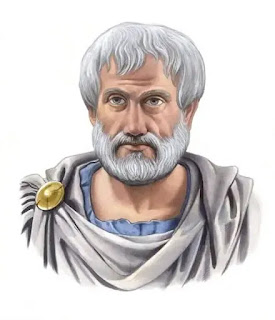Aristotle’s concept of Tragedy and its Six formative Elements or Parts
The term tragedy is used in common parlance, and yet it cannot be reduced to a formula, for it has so many shades that it actually defies logical analysis. An American critic has admirably summed up Tragedy in a few words: “courage and inevitable defeat.” Now-a-days we can never think of a Tragedy without an unhappy ending. But the Greeks did. Philoctetes by Sophocles, for example, has no unhappy ending. In the chapter, VI Aristotle discusses tragedy which becomes the central theme of the rest of the Poetics. Tragedy, according to him, “is an imitation of an action that is serious, complete and of a certain magnitude, in language embellished with each kind of artistic ornament, the several kinds being found in separate parts of the play, in the form of action, not of narrative; through pity and fear effecting the proper purgation of these emotions.” The analysis of this definition yields the following facts–
1.The subject of a tragedy is an action that is (a) Serious, (b) Complete, and (c) of a certain size. Action necessitates plot, character and thought.
2.The medium of tragedy is language embellished with rhythm, harmony, and song. Language necessitates diction and song.
3.The manner of imitation is dramatic, not narrative. The dramatic mode necessitates spectacle.
4. Pity and fear are the appropriate tragic emotions.
5.The function of tragedy is emotional relief through a process called catharsis.
Aristotle recognizes six, and only six, significant ‘parts’ or elements in a tragedy. In order of importance, they are Plot ‘mythos’, Character “ethos”, Thought ‘dianoia’, Diction ‘Lexis’, Melody ‘melos’, and Spectacle ‘opsis’. These parts are produced by the basic principle of imitation, manner, means, and objects.
The plot, the first of these, occupies the most important place. Tragedy imitates ‘actions’ and its plot consists of a logical and inevitable sequence of events. The ‘action’ it imitates is its plot. The action must be complete, i.e, it must have a beginning, a middle, and an end. “The beginning is that from which further action flows out, and which is intelligible in itself, and not consequent or dependent on any previous situation.”
Character is relegated to a secondary place. We must keep in mind, however, that by character Aristotle means not an individualized personality but an agent’s capacity, or lack of it, for making moral choices: that is what the word ‘ethos’ means. For us, a character includes thought and moral processes, emotional complexity, and the actions ensuing from them; in short, the whole personality, of a fictive character. In Aristotle, the character is limited only to the moral qualities of an agent. It is because of this reason that Aristotle can confidently say, that there can be a tragedy without the character “ethos”, that is it say, a tragedy is possible in which the agents are not involved in making moral choices.
The third formative element of a tragedy is thought “dianoia”. By thought Aristotle does not mean the central thematic framework, of a tragedy but simply the intellectual content of the characters’ speeches: “Thought is present whenever an agent provokes a point or expresses a general truth.” Since Aristotle has already discussed thought in Rhetoric, to which it belongs, his discussion of thought is rather brief in the Poetics. He also associates it with Oratory and therefore with another discipline, Politics. But his meaning of thought and its working in a tragedy all clear. As an illustration, he says that “our earlier poets made their character speak like statesman whereas the modern poets make them speak like rhetoricians”.
The fourth formative element of a tragedy is diction. Although Aristotle later devotes two chapters to discuss language, his discussion is restricted to purely grammatical aspects, and the only figure of speech he mentions is “metaphor”. However, the style that he generally prefers for a tragedy is the one between highly elevated and ornamental language and the one which uses familiar or standard diction.
The least two important elements, according to Aristotle, are melody and spectacle. The first is required for the speeches, or more appropriately the odes, of the chorus, while spectacle is necessitated by the very nature of drama which is meant to be staged. Aristotle dismisses spectacle as something belonging to the art of producers and does not say practically anything about it. Since he did not have much contact with the best theatrical tradition of ancient Greece, he could not conceive of spectacle as forming a part of the playwright’s business.
Aristotle is heavily biased in favor of the plot and that is why he does not devote much space to the discussion of other formative elements. He could not conceive of language in the form of images and metaphor as forming a verbal pattern that has a direct bearing on the central themes of a play. Similarly, he ignores spectacle, though no practicing playwright can afford to do so. The result is that Aristotle’s discussion of formative elements of a tragedy remains more on the theoretical than the practical side. He is an academician who thinks of drama as literature, not as a man of the theatre who thinks of drama as meant for public performances.
#Aristotle’s_concept_of_tragedy_and_its_six_formative_Elements_or_Parts

Thanks a million sir👍👍👍❤❤❤❤❤🥰🥰
Your most welcome